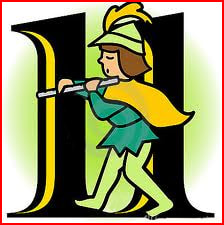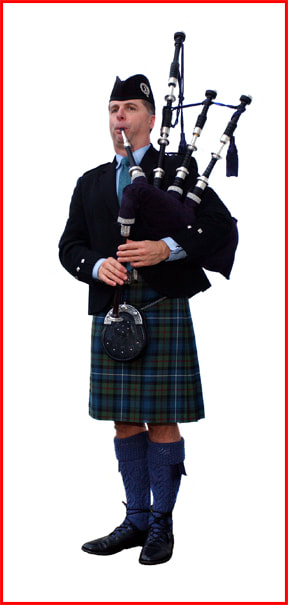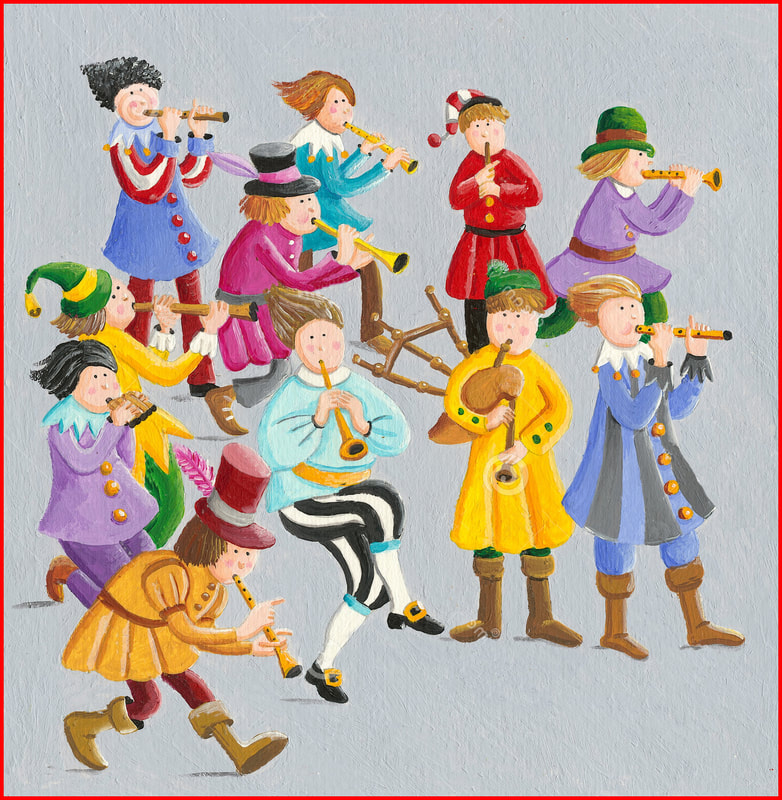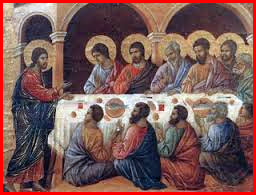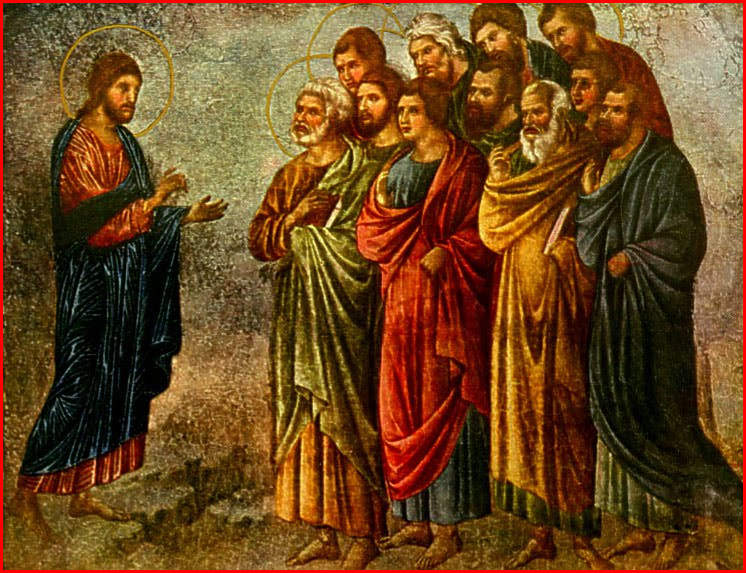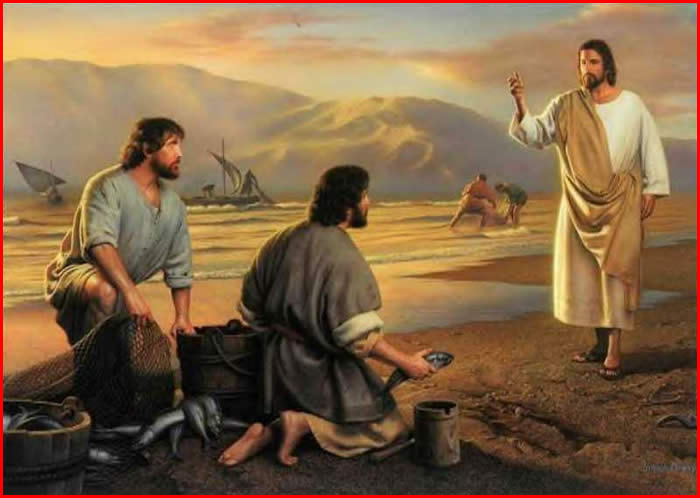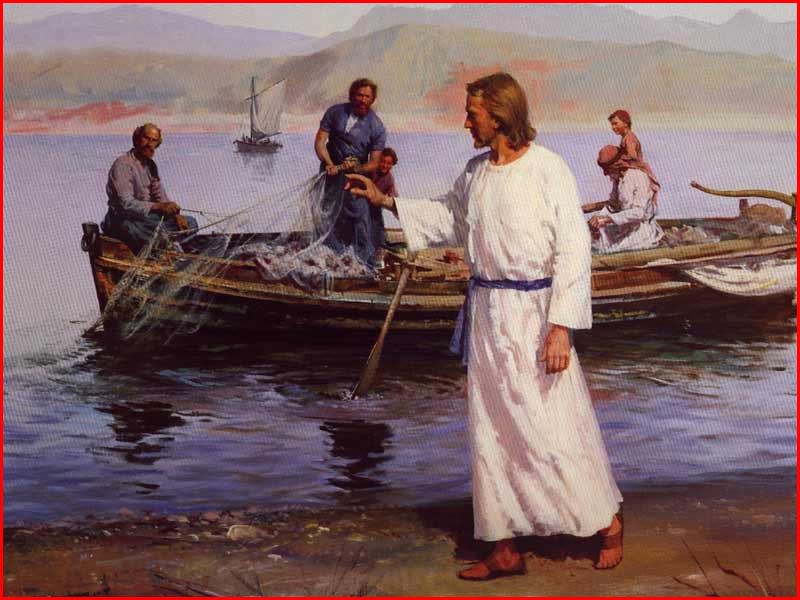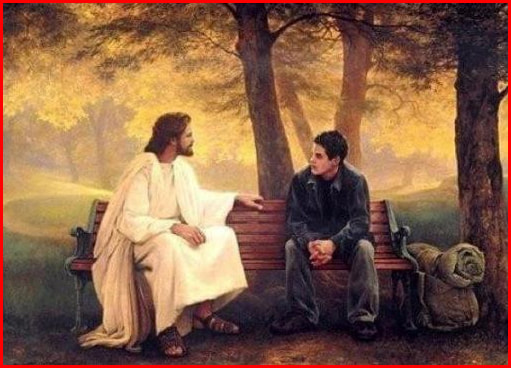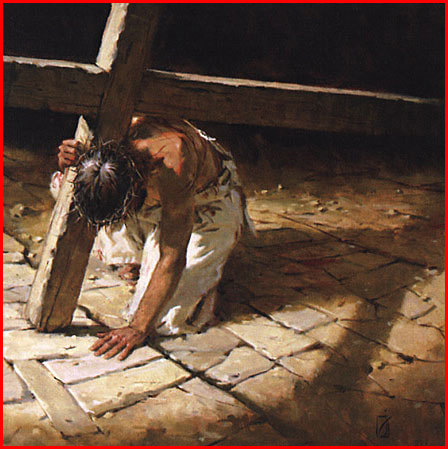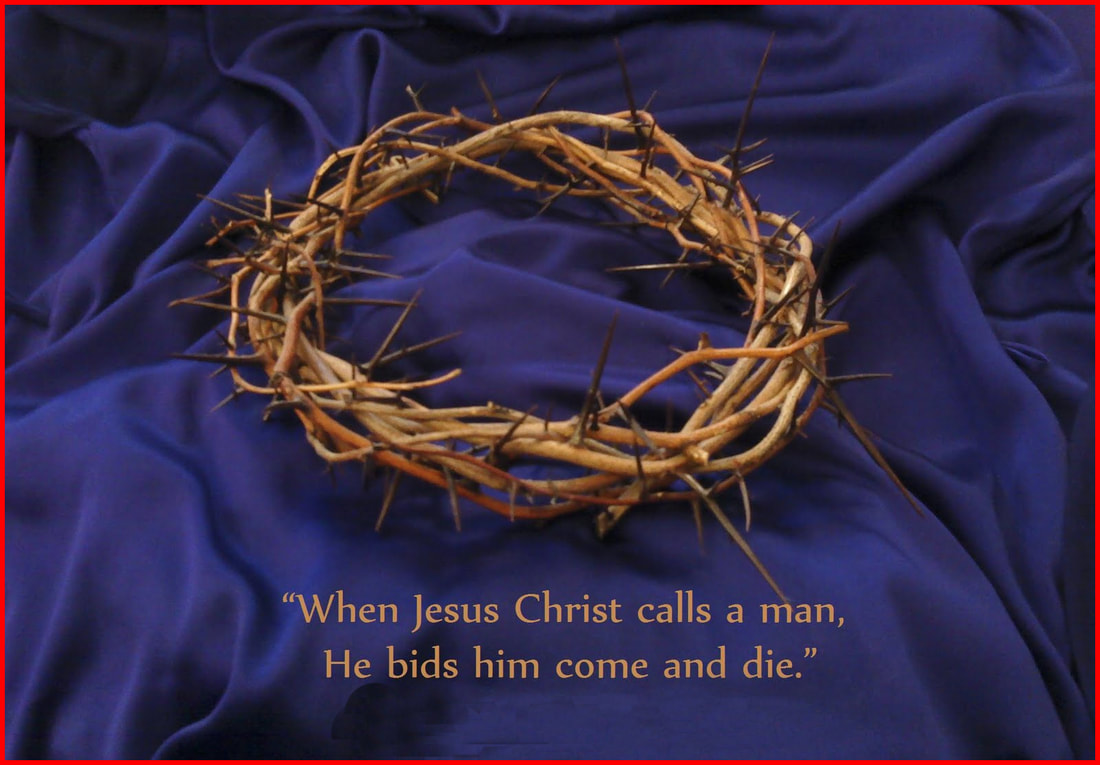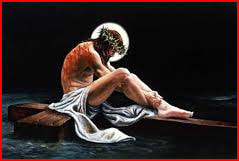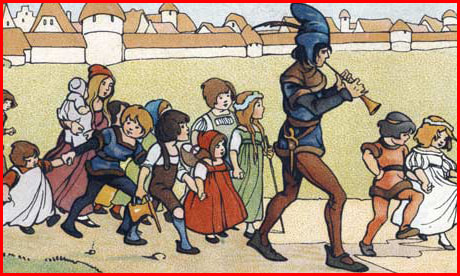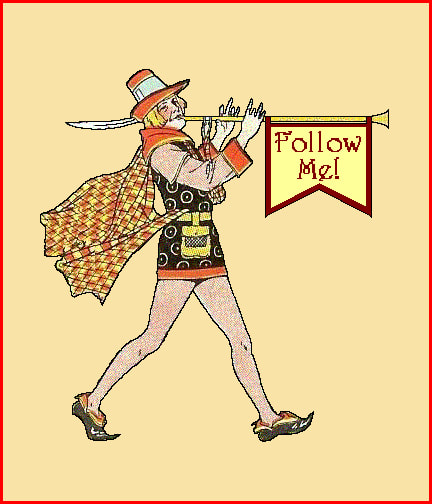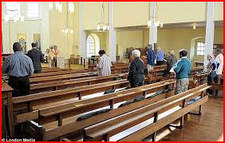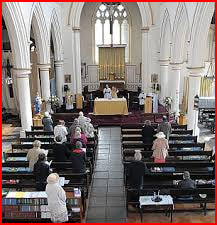| Devotion to Our Lady |
|
- Homepage
-
Daily Thoughts
- 2023 October Daily Thoughts
- Daily Thoughts Lent 2020
- Daily Thoughts for Advent 2019
- Daily Thoughts for October 2019
- Daily Thoughts for September 2019
- Daily Thoughts for August 2019
- Daily Thoughts for July
- Daily Thoughts for June
- Daily Thoughts for Easter 2019
- Daily Thoughts for Lent 2019
- Daily Thoughts for Christmas
- Daily Thoughts Easter 2022
- Sacred Heart
- Holy Ghost
-
Spiritual Life
- Holy Mass Explained
- First Friday Devotions
- First Saturday Devotions
- The Mercy of God
- Vocations
- The Path Everyone Must Walk >
- Gift of Failure
- Halloween or Hell-O-Ween?
- Ignatian Spiritual Exercises >
- Meditation is Soul-Saving
- Spiritual Communion
- Miraculous Medal
- Enrollment in Miraculous Medal
- St. Benedict Medal
- Holy Water
- Advice on Prayer
- Your Daily Mary
-
Prayers
- September Devotions
- Seven Sorrows of Our Lady
-
Novenas
>
- NV-Help of Christians
- NV-Nativity of Our Lady
- NV-Seven Sorrows
- NV- Sorrowful Heart
- NV-Pope St Pius X
- NV-La Salette
- NV-St Michael Archangel
- NV-Immaculate Heart
- NV-Assumption
- NV-Novena for Fathers
- NV-Novena for Your Mother
- NV-St Raphael Archangel
- NV-Souls in Purgatory
- NV-All Saints Day
- NV-Christ the King
- NV-Divine Motherhood
- NV-Guardian Angels
- NV-Rosary
- NV-Mirac Med
- NV- Imm Conc
- NV - Guadalupe
- NV - Nativity of Jesus
- NV-Epiphany
- NV-OL Good Success
- NV-Lourdes
- NV-St Patrick
- NV-St Joseph
- NV-Annunciation
- NV-St Louis de Montfort
- NV-OL Good Counsel
- NV-Last Supper
- NV-Passion
- NV-Pentecost
- NV-Ascension
- NV-Sacred Heart
- NV-Sacred Heart & Perpetual Help
- NV-Corpus Christi
- NV-OL of Perpetual Help
- NV-Queenship BVM
- NV-OL of Mount Carmel
- NV-St Mary Magdalen
- NV- Im Hrt
- August Devotions to IHM
- Immaculate Heart of Mary
- Litany of Dependence
- Prayers to St Mary Magdalen
- Prayers in Times of Sickness Disease & Danger
- Holy Souls in Purgatory
- Meditations on the Litany of Our Lady
- Special Feast Days
- Prayers to Mary (Mon-Sun)
- Litanies to Our Lady >
- Various & Special Needs
- Our Lady of the Rosary
- Our Lady of Mt. Carmel
- Our Lady of Perpetual Help
- Our Lady of Guadalupe
- Other titles of Our Lady
-
Rosary
- Downloads
- Consecration
- Easter Season
-
Holy Week
- Last Seven Words of Jesus >
- Characters of Passion >
- The Last Days of Christ
- Before Palm Sunday
- Palm Sunday
- Monday in Holy Week
- Tuesday in Holy Week
- Wednesday in Holy Week
- Holy Thursday (Last Supper)
- Holy Thursday (Agony & Arrest)
- Night Vigil with Christ
- Good Friday (Pilate & Herod)
- Good Friday (Way of Cross & Crucifixion)
- Saturday in Holy Week
-
Lent
- Ideas for Lent
- Daily Lenten Planner
- Daily Lenten Liturgy
- From Cold to Hot
- Lent with Aquinas
- Lent with Dom Gueranger
- Virtues for Lent
- History of Penance
- How Expensive is Sin?
- Confession of Sins
- Letter to Friends of the Cross
- Sermons for Lent
- Stations of the Cross >
- Lenten Prayers
- 7 Penitential Psalms
- Lenten Psalms SUN
- Lenten Psalms MON
- Lenten Psalms TUE
- Lenten Psalms WED
- Lenten Psalms THU
- Lenten Psalms FRI
- Lenten Psalms SAT
- Lenten Laughs
- Septuagesima
-
Christmas
- Epiphany Explained
- Suggestions for Christmas
- Food For Thought
- Christmas with Aquinas
- Christmas with Dom Gueranger
- Christmas Prayers
- Candles & Candlemas
- Christmas Sermons
- Christmas Prayers SUN
- Christmas Prayers MON
- Christmas Prayers TUE
- Christmas Prayers WED
- Christmas Prayers THU
- Christmas Prayers FRI
- Christmas Prayers SAT
- Twelve Days of Christmas >
-
Advent Journey
- Purgatory
- Christ the King
- Legion of Mary
- Scapular
-
Saints
-
Martyrs for the Faith
>
- Your Daily Martyr >
- All 365 Days of Martyrs
- Cristeros
- St Valentine & Valentine's Day
- Martyrs--Thomas Becket
- Martyrs--John the Apostle
- Holy Machabees
- Age of Martyrdom
- Carmelites of Compiegne
- Martyrs--Peter & Paul
- Martyrs--John the Baptist
- Martyrs--Andrew
- Martyrs--James the Great
- Martyrs--North American
- Martyrs--Seven Holy Sleepers
- Martyrs--Afra
- School of Martyrdom
- Martyrs--Christina
- Desert Saints >
- Saints for Sinners >
- Saints of Mary >
- History of All Saints Day
-
Martyrs for the Faith
>
- Precious Blood
- Synod 2023
-
Catechism
- Catechism Lesson 1
- Catechism Lesson 2
- Catechism Lesson 3
- Catechism Lesson 4
- Catechism Lesson 5
- Catechism Lesson 6
- Catechism Lesson 7
- Catechism Lesson 8
- Catechism Lesson 9
- Catechism Lesson 10
- Catechism Lesson 11
- Catechism Lesson 12
- Catechism Lesson 13
- Catechism Lesson 14
- Catechism Lesson 15
- Catechism Lesson 16
- Catechism Lesson 17
- Catechism Lesson 18
- Catechism Lesson 19
- Catechism Lesson 20
- Catechism Lesson 21
- Catechism Lesson 22
- Bible Study
-
Calendar
- Miracles
- Apparitions
- Shrines
- Prophecies
- Angels Homepage
- Hell
-
Church Crisis
- Conspiracy Theories
- Amazon Synod 2019 >
- Liberalism & Modernism
- Modernism--Encyclical Pascendi
- Modernism & Children
- Modernism--Documents
- The Francis Pages
- Church Enemies on Francis
- Francis Quotes
- Amoris Laetitia Critique
- Danger of Ignorance (Pius X)
- Restore all In Christ (Pius X)
- Catholic Action (Pius X)
- Another TITANIC Disaster?
- The "Errors of Russia"
- CRISIS PRAYERS
- Election Novena 2024
- The Anger Room
- War Zone
- Life of Mary
- Spiritual Gym
- Stupidity
- Coronavirus and Catholicism
- History & Facts
- Books
- Catholic Family
- Children
- Daily Quiz
-
Novena Church & Pope
- Day 01 Church-Pope Novena
- Day 02 Church-Pope Novena
- Day 03 Church-Pope Novena
- Day 04 Church-Pope Novena
- Day 05 Church-Pope Novena
- Day 06 Church-Pope Novena
- Day 07 Church-Pope Novena
- Day 08 Church-Pope Novena
- Day 09 Church-Pope Novena
- Day 10 Church-Pope Novena
- Day 11 Church-Pope Novena
- Day 12 Church-Pope Novena
- Day 13 Church-Pope Novena
- Day 14 Church-Pope Novena
- Day 15 Church-Pope Novena
- Day 16 Church-Pope Novena
- Day 17 Church-Pope Novena
- Day 18 Church-Pope Novena
- Day 19 Church-Pope Novena
- Day 20 Church-Pope Novena
- Day 21 Church-Pope Novena
- Day 22 Church-Pope Novena
- Day 23 Church-Pope Novena
- Day 24 Church-Pope Novena
- Day 25 Church-Pope Novena
- Day 26 Church-Pope Novena
- Day 27 Church-Pope Novena
- Day 28 Church-Pope Novena
- Day 29 Church-Pope Novena
- Day 30 Church-Pope Novena
- Day 31 Church-Pope Novena
- Day 32 Church-Pope Novena
- Day 33 Church-Pope Novena
- Day 34 Church-Pope Novena
- Day 35 Church-Pope Novena
- Day 36 Church-Pope Novena
- Day 37 Church-Pope Novena
- Day 38 Church-Pope Novena
- Day 39 Church-Pope Novena
- Day 40 Church-Pope Novena
- Day 41 Church-Pope Novena
- Day 42 Church-Pope Novena
- Day 43 Church-Pope Novena
- Day 44 Church-Pope Novena
- Day 45 Church-Pope Novena
- Day 46 Church-Pope Novena
- Day 47 Church-Pope Novena
- Day 48 Church-Pope Novena
- Day 49 Church-Pope Novena
- Day 50 Church-Pope Novena
- Day 51 Church-Pope Novena
- Day 52 Church-Pope Novena
- Day 53 Church-Pope Novena
- Day 54 Church-Pope Novena
- Penance Novena
- Daily WeAtheR Forecast
CLICK ON ANY CHRISTMAS LINK BELOW
(most links are available now, the other links will activated shortly)
TWELVE DAYS OF CHRISTMAS
| 12 Day Homepage | 1st Day of Christmas | 2nd Day of Christmas | 3rd Day of Christmas |
| 4th Day of Christmas | 5th Day of Christmas | 6th Day of Christmas | 7th Day of Christmas
| 8th Day of Christmas | 9th Day of Christmas | 10th Day of Christmas | 11th Day of Christmas | 12th Day of Christmas |
PRAYING THE PSALMS THROUGH CHRISTMAS
| Sundays | Mondays | Tuesdays | Wednesdays | Thursdays | Fridays | Saturdays |
SPIRITUAL READING THROUGH CHRISTMAS
| St. Thomas Aquinas on Christmas | Dom Gueranger on Christmas |
(most links are available now, the other links will activated shortly)
TWELVE DAYS OF CHRISTMAS
| 12 Day Homepage | 1st Day of Christmas | 2nd Day of Christmas | 3rd Day of Christmas |
| 4th Day of Christmas | 5th Day of Christmas | 6th Day of Christmas | 7th Day of Christmas
| 8th Day of Christmas | 9th Day of Christmas | 10th Day of Christmas | 11th Day of Christmas | 12th Day of Christmas |
PRAYING THE PSALMS THROUGH CHRISTMAS
| Sundays | Mondays | Tuesdays | Wednesdays | Thursdays | Fridays | Saturdays |
SPIRITUAL READING THROUGH CHRISTMAS
| St. Thomas Aquinas on Christmas | Dom Gueranger on Christmas |
THE CONTROVERSY OVER THE SONG "THE TWELVE DAYS OF CHRISTMAS"
In the last 20 or so years, there has been quite a bit of controversy over the song The Twelve Days of Christmas. Some say it was a cryptic catechism song, used by the persecuted Catholics of England as a means to teach their children some rudimentary teachings of the Faith under the disguise of a seemingly harmless song. Others contest this, by saying that there is no evidence to back-up this claim and say that the alleged points of doctrine to be found hidden in the song, are ... (click here to read more)
"...Eleven Pipers Piping"
|
THE NUMBER ELEVEN
The number ELEVEN reminds us of: The ELEVEN faithful Apostles The ELEVEN curtains covering the tabernacle in the Temple. THE PIPERS The most common form of pipe band, the Scottish pipe band, consists of a section of pipers and a section of drummers The band follows the direction of the pipe major; when on parade the band may be led by a drum major, who directs the band with a mace. Standard instrumentation for a pipe band involves anywhere from 6 to 25 pipers, and 5 to 17 drummers. Pipe bands are a long-standing tradition in other areas with Celtic roots, such as the regions of Galicia, Asturies and Cantabria in Northern Spain and Brittany in Western France, as well as other regions with Celtic influence in other parts of Europe. It’s also a long-standing tradition in the British Commonwealth of Nations countries and former British colonies such as Canada, India, Malaysia, Singapore, Hong Kong, Brunei, Sri Lanka and Pakistan. Pipe bands have also been established in countries with few Scottish or Celtic connections such as the United States, Thailand, Colombia, Mexico, Brazil, Chile, Uruguay, and Argentina. The pipe band began life in the military, but its origins are obscure. It is known that pipers served in regiments from the earliest times; the Royal Scots have records referring to pipers dating back to the early seventeenth century. By this time, pipers were already playing together with drummers, probably modelling themselves on the fife and drum bands which had existed in Switzerland since the fifteenth century. THE SYMBOLISM AND EFFECT OF PIPE MUSIC Since the pipe-bands were first and foremost military bands, one cannot discuss them while alienating them from their roots. Armed forces all over the world have deep-rooted martial music traditions. Music as God's creation, is capable of touching the heart and soul, thus, arousing emotions. Music aided by words and beats becomes a very potent and pertinent medium for rousing emotions. In olden times, martial music roused and inspired feelings of courage and valor amongst soldiers in the battlefield. The present bands are evolved from such old and venerated traditions of martial music. Even though the military band is ceremonial in its function, it plays an important role in instilling a sense of pride and motivating men to accomplish deeds of excellence, be it in operations, the field of sports or other functions of regimental life. These bands are part of ceremonial attestation parades, official functions, regimental dinner nights, unit celebrations and drill parades. They play regimental tunes, traditional marching tunes, folk tunes, making these functions more colorful and enjoyable. The main objective of martial tunes for the infantry is to promote orderly marching, enliven the spirit, and minimize fatigue and boredom. They also inspire the troops to fight and carry out orders and commands. The war songs of the primitive societies when sung by fighting members of a tribe, raised the morale of troops and, on the other hand, instilled fear in the enemy. Vocal music along with the instrumental music also contributed to the cause. A military band has woodwind, brass and percussion instruments blended together according to certain internationally accepted conventions. The brass band has only brass and percussion instruments and is known in India. A proper balanced military band consists of a band master and 33 musicians. Many infantry regiments have pipes and drums, thus playing an important part in a soldier's life. Generally speaking, bagpipes have always attracted all the strata of society, particularly the officers of the armed forces. A properly balanced pipe and drums consists of a band master and 17 musicians. We can draw parallels from this with the Church. The Apostles and their successors, are the ones who teach us the tune that we must learn by heart to sing. That tune is the doctrine of the Church. They inspire the faithful to follow the tactics laid down by Christ and give them courage in the warfare that they have to continually undergo against the devil, the world and the flesh. THE ELEVEN FAITHFUL APOSTLES “And going back from the sepulcher, they told all these things to the Eleven, and to all the rest” (Luke 24:9). The two disciples who had encountered the risen Jesus on the road to Emmaus, and recognized Him at the ‘breaking of the bread’ … "rising up, the same hour, they went back to Jerusalem: and they found the eleven gathered together, and those that were staying with them … and told what things were done in the way; and how they knew Him in the breaking of the bread.” (Luke 24:33-35). ”At length he appeared to the eleven as they were at table: and he upbraided them with their incredulity and hardness of heart, because they did not believe them who had seen him after he was risen again” (Mark 16:14). “And the Eleven Disciples went into Galilee, unto the mountain where Jesus had appointed them. And seeing Him they adored: but some doubted. And Jesus coming, spoke to them, saying: 'All power is given to Me in Heaven and in earth. Going therefore, teach ye all nations; baptizing them in the name of the Father, and of the Son, and of the Holy Ghost. Teaching them to observe all things whatsoever I have commanded you: and behold I am with you all days, even to the consummation of the world' ” (Matthew 28:16-20). After the demise of the traitor Juda, the Apostles sought to replace him. They selected two candidates, Joseph, called Barsabas, who was surnamed Justus, and Matthias. ”And they gave them lots, and the lot fell upon Matthias, and he was numbered with the Eleven Apostles” (Acts 1:26). THE CALL OF THE APOSTLES ► ST. MATTHEW 4:18-22 — THE CALL OF ANDREW, PETER, JAMES & JOHN “And Jesus walking by the sea of Galilee, saw two brethren, Simon who is called Peter, and Andrew his brother, casting a net into the sea (for they were fishers). And He saith to them: ‘Come ye after Me, and I will make you to be fishers of men!’ And they immediately leaving their nets, followed Him. And going on from thence, He saw other two brethren, James the son of Zebedee, and John his brother, in a ship with Zebedee their father, mending their nets: and He called them. And they forthwith left their nets and father, and followed Him.” (Matthew 4:18-22). ► ST. MARK 1:16-20 — THE CALL OF ANDREW, PETER, JAMES & JOHN “And passing by the sea of Galilee, He saw Simon and Andrew his brother, casting nets into the sea (for they were fishermen). And Jesus said to them: ‘Come after Me, and I will make you to become fishers of men!’ And immediately leaving their nets, they followed Him. And going on from thence a little farther, He saw James the son of Zebedee, and John his brother, who also were mending their nets in the ship: and forthwith He called them. And leaving their father Zebedee in the ship with his hired men, they followed Him” (Mark 1:16-20). ► ST. LUKE 5:2-11 — THE CALL OF ANDREW, PETER, JAMES & JOHN “And saw two ships standing by the lake: but the fishermen were gone out of them, and were washing their nets. And going into one of the ships that was Simon's, He desired him to draw back a little from the land. And sitting He taught the multitudes out of the ship. Now when He had ceased to speak, He said to Simon: ‘Launch out into the deep, and let down your nets for a draught.’ And Simon answering said to Him: ‘Master, we have labored all the night, and have taken nothing: but at Thy word I will let down the net.’ And when they had done this, they enclosed a very great multitude of fishes, and their net broke. And they beckoned to their partners that were in the other ship, that they should come and help them. And they came, and filled both the ships, so that they were almost sinking. Which, when Simon Peter saw, he fell down at Jesus' knees, saying: ‘Depart from me, for I am a sinful man, O Lord!’ For he was wholly astonished, and all that were with him, at the draught of the fishes which they had taken. And so were also James and John the sons of Zebedee, who were Simon's partners. And Jesus saith to Simon: ‘Fear not: from henceforth thou shalt catch men!’ And having brought their ships to land, leaving all things, they followed Him” (Luke 5:2-11). ► ST. LUKE 5:27-32 THE CALL OF MATTHEW (LEVI) "And after these things He went forth, and saw a publican named Levi, sitting at the receipt of custom, and He said to him: ‘Follow Me!’ And leaving all things, he rose up and followed Him. And Levi made Him a great feast in his own house; and there was a great company of publicans, and of others, that were at table with them. But the Pharisees and Scribes murmured, saying to His disciples: ‘Why do you eat and drink with publicans and sinners?’ And Jesus answering, said to them: ‘They that are whole, need not the physician: but they that are sick. I came not to call the just, but sinners to penance’” (Luke 5:27-32). ► ST. LUKE 6:13-16 — JESUS SELECTS THE TWELVES APOSTLES FROM AMONG ALL OF HIS FOLLOWERS “And when day was come, He called unto Him His disciples; and He chose twelve of them (whom also He named apostles). Simon, whom He surnamed Peter, and Andrew his brother, James and John, Philip and Bartholomew, Matthew and Thomas, James the son of Alpheus, and Simon who is called Zelotes, and Jude, the brother of James, and Judas Iscariot, who was the traitor” (Luke 6:13-16). JESUS CALLS US TO FOLLOW HIM Where do we want to go? There are only two possible forwarding addresses for us: Heaven or Hell. ”He that is not with Me, is against Me: and he that gathereth not with Me, scattereth” (Matthew 12:30). He who desires the end, must also necessarily desire the means to that end: even if those means many seem unpleasant. If I desire a cure to a particular illness, then I implicitly desire what that cure will entail. “And He said to all: ‘If any man will come after Me, let him deny himself, and take up his cross daily, and follow Me’” (Luke 9:23). Those means will necessarily mean being disliked and perhaps even being hated and persecuted by those who prefer the luxuries and comforts of the world rather than the comfort of the cross. “Every one therefore that shall confess Me before men, I will also confess him before My Father Who is in Heaven. But he that shall deny Me before men, I will also deny him before My Father Who is in Heaven. Do not think that I came to send peace upon earth: I came not to send peace, but the sword. For I came to set a man at variance against his father, and the daughter against her mother, and the daughter-in-law against her mother-in-law. And a man’s enemies shall be they of his own household. He that loveth father or mother more than Me, is not worthy of Me; and he that loveth son or daughter more than Me, is not worthy of Me. And he that taketh not up his cross, and followeth Me, is not worthy of Me. He that findeth his life, shall lose it: and he that shall lose his life for me, shall find it” (Matthew 10:32-29). “But beware of men. For they will deliver you up in councils, and they will scourge you in their synagogues. And you shall be brought before governors, and before kings for My sake, for a testimony to them and to the Gentiles! But when they shall deliver you up, take no thought how or what to speak: for it shall be given you in that hour what to speak. For it is not you that speak, but the Spirit of your Father that speaketh in you. The brother also shall deliver up the brother to death, and the father the son: and the children shall rise up against their parents, and shall put them to death. And you shall be hated by all men for My Name’s sake: but he that shall persevere unto the end, he shall be saved. And when they shall persecute you in this city, flee into another” (Matthew 10:17-23). As the Imitation of Christ so rightly says: “Jesus has always many who love His heavenly kingdom, but few who bear His cross. He has many who desire consolation, but few who care for trial. He finds many to share His table, but few to take part in His fasting. All desire to be happy with Him; few wish to suffer anything for Him. Many follow Him to the breaking of bread, but few to the drinking of the chalice of His passion. Many revere His miracles; few approach the shame of the Cross. Many love Him as long as they encounter no hardship; many praise and bless Him as long as they receive some comfort from Him. But if Jesus hides Himself and leaves them for a while, they fall either into complaints, or into deep dejection. Those, on the contrary, who love Him for His own sake and not for any comfort of their own, bless Him in all trial and anguish of heart as well as in the bliss of consolation” (Imitation of Christ, Book 2, Chapter 11, “Few Love the Cross of Christ”) THE PIED PIPER In 1284, while the town of Hamelin was suffering from a rat infestation, a man dressed in pied clothing appeared, claiming to be a rat-catcher. He promised the mayor a solution for their problem with the rats. The mayor in turn promised to pay him for the removal of the rats. The man accepted, and played a musical pipe to lure the rats with a song into the Weser River, where all but one drowned. Despite his success, the mayor reneged on his promise and refused to pay the rat-catcher the full amount of money. The man left the town angrily, but vowed to return some time later, seeking revenge. On Saint John and Paul's day while the inhabitants were in church, he played his pipe yet again, dressed in green, like a hunter, this time attracting the children of Hamelin. One hundred and thirty boys and girls followed him out of the town, where they were lured into a cave and never seen again. Depending on the version, at most three children remained behind. One of the children was lame and could not follow quickly enough, the second was deaf and followed the other children out of curiosity, and the last was blind and unable to see where he was going. These three informed the villagers of what had happened when they came out of church. THE ELEVEN PIED PIPERS OF THE MODERN WORLD 1. IMPURITY AND LUST Our Lady of Fatima told us that this is the 'big-killer”, the one that damns most souls in this modern world. So alluring, so sweet, so seductive, so pleasant, yet so damnable. Today's world lives, eats, drinks and breathes impurity. 2. PRIDE The root of all sin, according to Holy Scripture, is pride. Because of Original Sin, we are all born with it. The world is an expert at making it grow from a poisonous weed into a plant that can climb over and choke all that we think, say or do. 3. COVETOUSNESS One of the first areas of rebellion against Divine Providence. We will not accept what Providence has given to us, we want more. We look around at those who have what we do not have, and we covet. 4. GLUTTONY A 'feeder' of other vices, besides being a vice itself. A failure to control an appetite for food and drink, leads to a failure to control an appetite for possessions, and a failure to control the sexual appetite. It also leads to sloth. 5. ENVY Envy at another person's qualities, talents, position or possessions leads very quickly to other sins, such as hatred, anger, injustice, detraction, calumny, persecution, theft, etc. 6. ANGER There is a just anger and an unjust anger. Too often we pretend our anger is always justified—however this is not the case. Our ‘just’ anger will in fact often be an implicit, if an outright explicit, rejection of Divine Providence. We are angry because things are not going the way we want them to go, but things are ALWAYS going the way Providence wants them to go. The basis and foundation for anger is pride. 7. SLOTH This is the seed of lukewarmness, for it leads to a laziness in spiritual duties and exercises. 8. COMFORT AND EASE Which is a direct attack upon the doctrine of the Cross and of redemptive suffering. 9. INDIFFERENCE AND LUKEWARMNESS Once we make peace with even venial sin, by committing it more and more, while feeling guilt less and less, we fall into an indifference or a “couldn't care less” attitude towards God and the Faith. A divorce arises within ourselves. We believe in theory, but we put theory into practice less and less. We are happy with doing the minimum required. 10. RATIONALISM AND LIBERALISM In a nutshell, these two poisons encourage mankind to think what they want and to do what they want. They are the two pillars that hold up the throne of man, who has uncrowned and dethroned God. 11. AGNOSTICISM AND ATHEISM Agnosticism is the doctrine of doubt: “We can't be sure about this, or sure about that!” It might be a doubt that Adam and Eve really existed; or doubts about other stories in the Bible; doubts about miracles; doubts about Divine Revelation; doubts about the Virgin Birth; doubts about the Resurrection; doubts about the Real Presence; doubts about Church teachings, especially on today's 'touchy' subjects. Each doubt is like a wound to the Faith. If this doubt is allowed to fester and grow like a cancer, it will result in Atheism, which holds that there is no God. At point, every Atheist becomes a god unto themselves. If more and more people have these doubts... Next stop: apostasy! HOW MANY WILL BE FAITHFUL IN OUR TIMES? ARE WE IN THE END TIMES? Jesus said: ”the Son of man, when He cometh, shall He find, think you, Faith on earth? (Luke 18:8). It is commonly held by Church and her theologians, not even taking account of the private revelations made to the mystics, that there will be a mass apostasy from the Faith. This will come at two separate times: first will come the lesser of the two mass apostasies, this will be overcome by the Triumph of the Immaculate Heart of Mary, then, after a short period of peace, will come the great mass apostasy, in the time of the Antichrist, which will be overcome by the second coming of Our Lord Jesus Christ. We are currently in some stage or another of the beginnings of the lesser of the two mass apostasies and it seems that the Third Secret of Fatima speaks of this, where the apostasy start at the very top. Chronologically the broad order of events are as follows: 1. There is an increasing falling away from the Church, which is the first of the two apostasies. During this time the world deteriorates in many ways, religiously, morally, politically, financially, etc. All will seem lost. 2. At this point, when all seems lost, the Immaculate Heart of Mary enters the fray and brings about a Triumph which results in the evangelization of the whole world (or what remains of it after God's chastisement, which was part of the Triumph of the Immaculate Heart). 3. As a result of the evangelization, the full number of the Gentiles come into the Church. 4. The Jews convert as a whole, and there is full inclusion of the Jews in the Messiah's salvation through the Catholic Church, in the wake of the full number of the Gentiles (#4 will follow quickly on, in the wake of, #3) 5. A final trial of the Church in the form of a religious deception offering men an apparent solution to their problems at the price of apostasy from the truth. The supreme deception is that of the Antichrist. 6. Christ's victory over this final unleashing of evil through a cosmic upheaval of this passing world and the Last Judgment. As (Pope Benedict XVI (then Cardinal Ratzinger) pointed out (in the context of the message of Fátima), we are not at the end of the world. In fact, the Second Coming (understood as the physical return of Christ) cannot occur until the full number of the Gentiles are converted, followed by “all Israel.” Approved Catholic mystics (Venerables, Blessed and Saints, approved apparitions) throw considerable light on this order, by prophesying a minor apostasy and tribulation toward the end of the world, after which will occur the reunion of Christians. Only later will the entire world fall away from Christ (the great apostasy) and the personal Antichrist arise and the Tribulation of the End occur. Although this is not Catholic doctrine, arising as it does from private revelation, it conforms to what is occurring in our time, especially in light of Our Lady of Fátima's promise of an “Era of Peace.” This “Triumph of the Immaculate Heart” (other saints have spoken of a social reign of Jesus Christ when Jesus will reign in the hearts of men) would seem to occur prior to the rise of the Antichrist. This would place us, therefore, in the period just before those “end-time” events, that is, on the verge of the Triumph of the Immaculate Heart and an evangelization of the entire world. Other interpretations are possible, but none seem to fit the facts as well, especially when approved mystics are studied, instead of merely alleged ones. |
Web Hosting by Just Host

